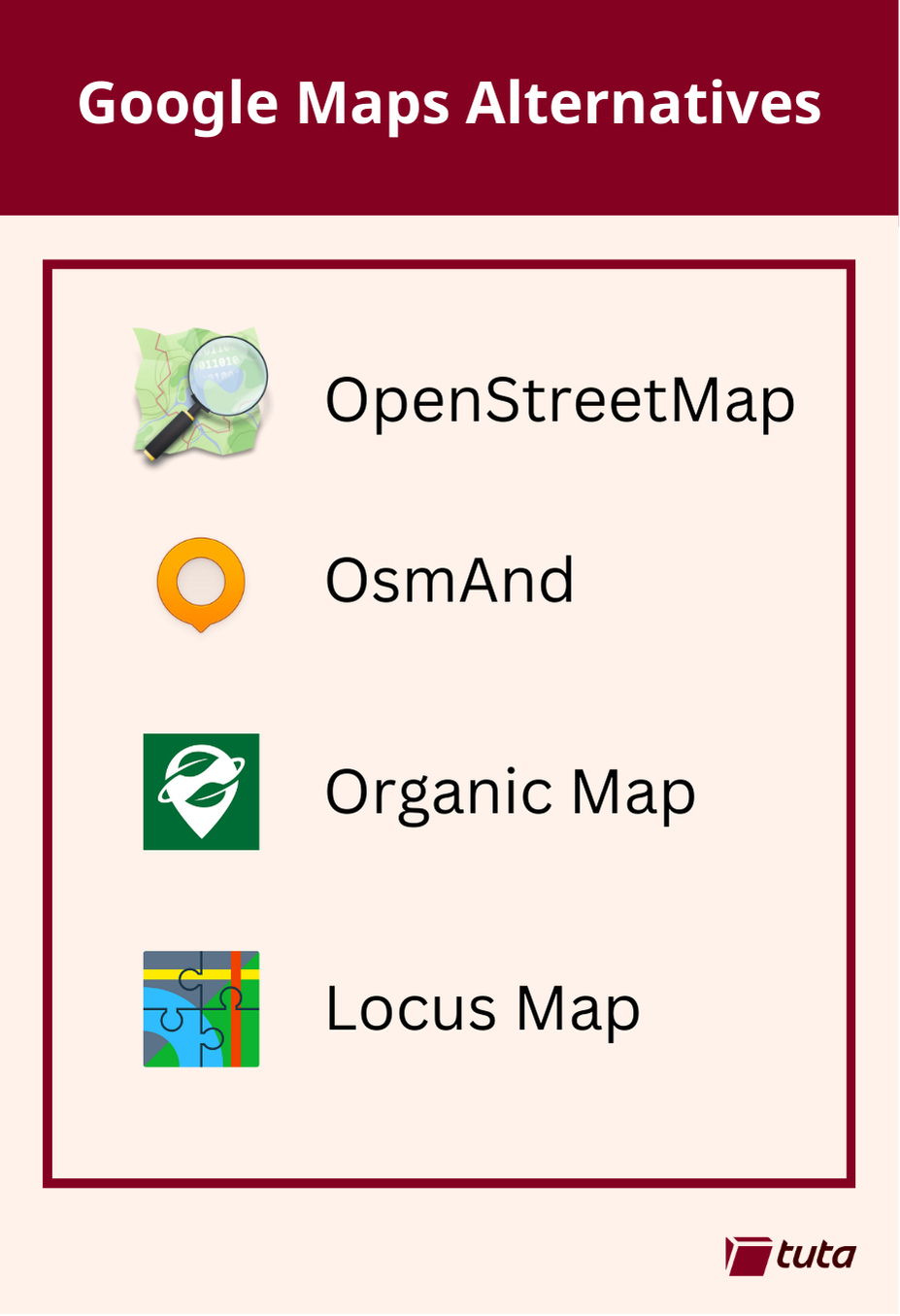repeated media reports of Google’s disregard for the privacy of the general public led to a push for open source, community driven alternatives to Google Maps. The biggest contender, now used by Google’s direct competitors and open source projects alike is OpenStreetMap.
- OsmAnd
OsmAnd is a fantastic choice when searching for an alternative to Google Maps. It is available on both Android and iOS devices with both free and paid subscription options. Free accounts have full access to maps and navigation features, but choosing a paid subscription will allow you unlimited map downloads and increases the frequency of updates.
All subscriptions can take advantage of turn-by-turn navigation, route planning, map markers, and all the favorite features you expect from a map and navigation app in 2024. By making the jump to a paid subscription you get some extra features like topo maps, nautical depths, and even point-of-interest data imported from Wikipedia.
- Organic Maps
Organic Maps is a great choice primarily because they offer support for all features of their iOS and Android apps completely offline. This means if you have an old phone laying around, you can install the app, download the maps you need and presto! You now have an indepth digital map in the palm of your hand without needing to worry about losing or damaging your primary mobile device when exploring the outdoors.
Organic Maps tugs our heartstrings by their commitment to privacy. The app can run entirely without a network connection and comes with no ads, tracking, data collection, and best of all no registration.
- Locus Maps
Our third, and last recommendation today is Locus Maps. Locus Maps is built by outdoor enthusiasts for the same community. Hiking, biking, and geocaching are all mainstays of the Locus App, alongside standard street map navigation as well.
Locus is available in its complete version for Android, and an early version is available for iOS which is continuing to be worked on. Locus Maps offers navigation, tracking and routes, and also information on points-of-interest you might visit or stumble upon during your adventures.



I’ve been very satisfied by OSM map apps (mostly use Organic Maps) but my main issue is the lack of places and that’s why I use Google Maps mostly.
Edit: actually found https://mapcomplete.org/ which aims to kinda do that? Still exploring but seems really cool so far.
StreetComplete is another good app for adding details to the map, and it lets you select the type of things you want to add 👍
What is really frustrating to me is that my county actually has almost all of the data (including outlines and address numbers) publicly available and downloadable. There is a Wikipage on Open Street Maps written in 2020 talking about how that data has been downloaded and prepped and that it will be imported in 2021, but it never was. The wiki page was last updated 3 years ago.
I’m technologically competent enough to add things individually on OSM or StreetComplete, but that import is way above my technical understanding. I would love to donate or maybe even pay someone to finish what was apparently started, but I don’t even know who to contact about it.
I uninstalled OSM fast after it drove me to the second closed location
Just remember that these community efforts are only maintained by the community. If the data is inaccurate then the area needs more help.
As Darth Vader said, you have to be the change you want to see in the world.
Honestly I’d sooner try to fundraise and find a way to hire a person to actually do the job way before I’m going to start taking 5 minutes at every single trip to fill out information. The idea of community made data sets like this is very utopic and nice, but if you ask me it’s asking a lot. After all, everybody can edit Wikipedia to make it a better place too, but everybody knows there’s only a handful of dedicated Wikipedia gurus.